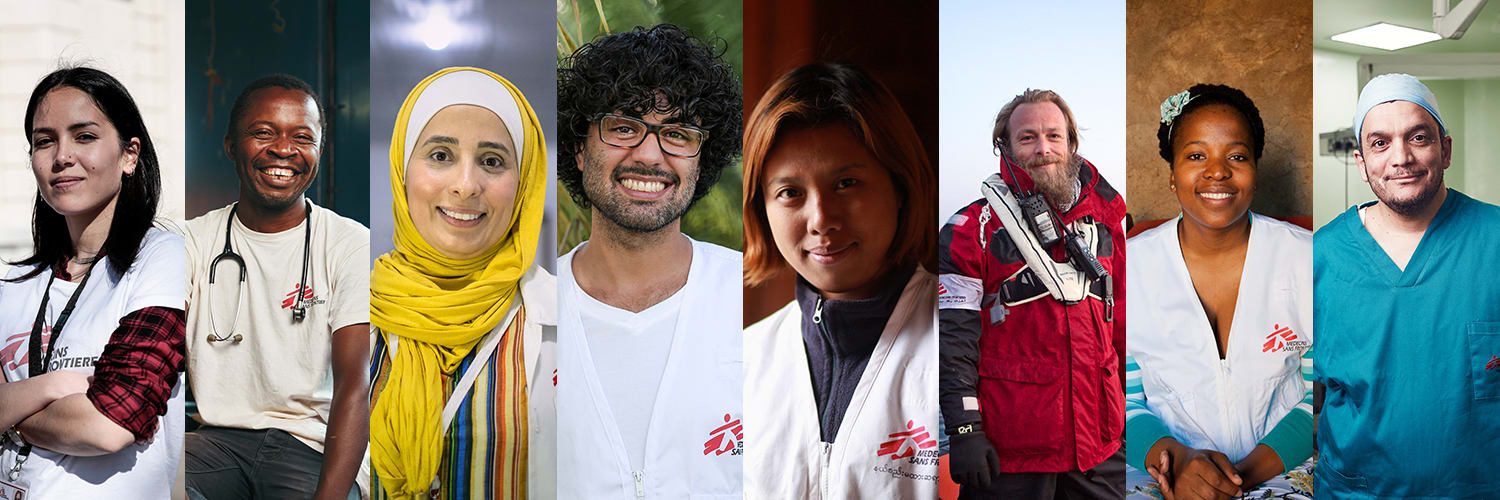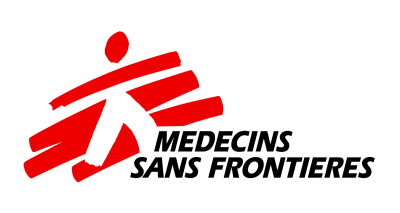
Regional Advisor - Europe
- Hybrid
Job description
Location: Brussels
Contract: Permanent, 100%
Starting date: As soon as possible, no later than mid-June 2025
Deadline to apply: 08.05.2025
I. MSF INTERNATIONAL
Médecins Sans Frontières (MSF) is an international, independent, medical humanitarian organisation that delivers emergency aid to people affected by armed conflict, epidemics, healthcare exclusion and natural disasters. MSF assists people based only on need and irrespective of race, religion, gender or political affiliation.
MSF International is the legal entity that binds MSF’s 24 sections, 27 associations and 18 branch offices together. Registered in Switzerland, MSF International provides coordination, information and support to the MSF Movement, as well as implements international projects and initiatives as requested.
The job’s description may evolve according to the new MSF Access Strategic Plan 2026-2031 and the evolution of some dossiers to stand-still or completion. Its main parameters (scope, area of expertise) would not be essentially altered. Until that key stage, the incumbent is expected to demonstrate a degree of flexibility in the performance of her/his work.
II. POSITION BACKGROUND
MSF Access (previously “Access to Products for Healthcare” (APH)) is the new structure which was created after a restructuration of the MSF Access Campaign (AC). It refers to advocating and involving into policy making to increase accessibility, availability, affordability, appropriateness, and quality of products for healthcare for the populations MSF assists and their communities.
Most of the structure’s staff will be based in five regional hubs:
Dakar, Senegal: covering West and Central Africa
Rio de Janeiro, Brazil: covering the Americas
Kuala Lumpur, Malaysia: covering Asia and Oceania
Nairobi, Kenya: covering Eastern and Southern Africa
Brussels, Belgium: covering Europe, the Middle East, and Northern Africa (MENA)
The new structure has the following responsibilities:
Gather input for MSF’s Common Priorities (CP) on Access to Health Products (Access).
Design and implement Access Analysis & Advocacy to respond to the agreed CP.
Provide, facilitate, support on Access files outside the CP to MSF entities that request it.
Maintain an overview of Access initiatives across MSF and report on them annually.
Research, and stay informed of, the Access landscape globally and regionally to inform the MSF Movement of opportunities and threats.
The seven Common Priorities (CP) currently agreed upon by the MSF Movement include: 1. Antimicrobial Resistance (AMR), 2. Vaccinations, 3. Tuberculosis, 4. Diabetes, 5. Diagnostic Tools, 6. Sexual Reproductive Health and 7. Cancer treatment. They are based on the Medical-Operational priorities witnessed by the Movement and are subject to possible changes on medium-term.
III. PLACE IN THE ORGANIZATION
The Regional Advisor - Europe will report to the Regional Access Coordinator for Europe & MENA. S/He will work in close cooperation with the Access Heads of Advocacy and Analysis, the Regional Advisor – Europe contributes to furthering the regional context understanding, maintaining and expanding key networks and engagement with relevant stakeholders to support the design and implementation of effective advocacy strategies towards governments, non-governmental stakeholders, pharmaceutical companies, and the research community in Europe in support of MSF’s strategic objectives in the region and globally.
For 2025 and probably also extending in the following years the MSF Access hub for Europe will be geared towards a sustained focus & involvement on following fields:
Access to Tuberculosis (TB) treatments in the EU region. Through its medical work in Europe, MSF has been confronted with a lack of access to both WHO-recommended and internationally used drug-sensitive and drug-resistant TB treatments. Regulatory barriers, high prices and failed market dynamics prevent patients in most European countries to benefit from these protocols.
Antimicrobial resistance: AMR is a growing global threat, being the leading cause of death worldwide. Recent estimates show the threat is growing at alarming rates. Europe can have a leading role in prioritizing R&D and investments to create the conditions for an equitable & affordable access to antimicrobials in LMIC.
Pandemic preparedness and response (PPR): While a final round of negotiations was hold in April 2025, to enhance global systems for preventing, preparing for, and responding to pandemics and other health emergencies, MSF will have to remain closely following how these will be translated in future responses. MSF emphasizes that effective PPR initiatives must address structural determinants of inequitable access to medical products.
Vaccinations: Immunisation is one of the most effective and cost-efficient public health interventions. GAVI, the Vaccine Alliance, which was set up to increase access to vaccines for children living in low- and middle-income countries (LMIC) has seen recently a dramatic cut of its budget by the US withdrawal. This impact will likely be compounded by other donors’ budget cuts. The EU and some European Member States being active Board Members of the Alliance are therefore important stakeholders to be dealt with.
Diabetes: Overall diabetes prevalence is increasing, particularly in LMIC. Cost of production data show that insulin can be provided at more affordable prices. Technology is advancing rapidly in high-income settings, while in LMIC treatment options are much more limited. MSF asks to end the double standard in diabetes care. Moreover, MSF urges EU & G20 nations to amplify the call for insulin pens to be made available at $1 per pen.
The MSF Movement doesn’t’ have presently many activities in Europe beyond a strategic involvement in migration and a TB treatment project in Poland. However, the presence of various important Regional Institutions and the active role of European Capitals and EU Institutions in funding of and involving in Global Health policy making, makes a strategic involvement of MSF Access of major interest.
While this position focuses solely on the Access to Treatment & Diagnostics, it is crucial that all activities here below remain fully coordinated with the MSF’s Humanitarian Representation Team (HRT) in charge of the high-level representation towards EU Institutions. MSF speaks with one voice and internal cohesion in MSF’s representation is crucial for our persuasiveness and leverage.
IV. MAIN RESPONSIBILITIES AND ACTIVITIES
The Regional Advisor -Europe is responsible to provide timely follow up and support on the 5 above-mentioned fields and engage with priority in operationalizing the TB-EU advocacy plan to address the main challenges to accessible and patient-centred TB treatment in Europe in the frame of the MSF operational priorities, angle and legacy. Essential ways of working are described as follows:
1. At EU Institutions (Brussels – Strasbourg, …) level, monitor, analyse, interact w/ and take note of policy discussions and outcomes of EU stakeholders which are influential on issues relevant to APH strategic objectives and regional access priorities.
Act as principal analyst for and advisor to the Access EU & MENA coordinator on the above-mentioned priorities and specific support on other files requested by individual MSF Sections: staying well-informed of changes and sharing timely and relevant developments concerning EU institutions and policies. This Includes:
Proactive follow-up of and internal reporting on EU policies, funding priorities and legislation that could be of impact to MSF Access Priorities.
Proactive follow-up of EU institutions’ agendas (European Parliament; Council Working Committees; Commission, ECDC, Trilogues and official Commission field visits…). Includes strategic input on where/when to influence agendas and to report or follow up (e.g. attending or listening in to video records of key public meetings).
“Scanning” publications from EU think tanks, Brussels-based NGOs and the UN, outlining key points of interest concerning MSF Access Priorities for the EU Regional Coordinator, and the Access Analysis & Advocacy Team.
In close collaboration with the HRT Representative, maintain and develop networks within the European Parliament and the EU Commission.
Develop and maintain a high and detailed understanding of MSF Access priorities and the ones of strategic interest for the EU to be able to develop or adapt talking points for external engagements in collaboration with the EU-MENA Access Coordinator and other MSF Access advocates in respective Member States.
Report all relevant meetings/interactions, feed relevant APH leads & coordinators, upload minutes to SharePoint, and, where relevant, highlight key outcomes for the HRT team (and other MSF internal platforms, see below).
2. Expand the actor mapping across Europe and contribute to a stakeholder analysis (EU, Governments, WHO EURO, ECDC, CSO, Industry...) on the Access Priorities. Liaise w/ Advocacy teams in each Europe-based MSF Section & project.
Participate with the Regional Access Coordinator to stakeholders’ discussions and platforms to convey MSF’s analysis and positioning on APH Priorities and define key allies w/in CSO & Parliament (EU & MS) levels.
Analyse opportunities / events at regional level and advise on new opportunities and events MSF needs to engage with.
3. In collaboration with the advocacy referent, liaise with Advocacy responsibles in EU-based Sections to help developing national leverage strategies to EU Institutions and other Global Health Institutions.
Internal dissemination of Europe-relevant information and updates through the internal communication lines of the MSF movement.
Job requirements
Minimum 3-5 years of experience directly relevant to the responsibilities of the position.
Experience in MSF or NGOs is mandatory. If experience within MSF, sound understanding of MSF’s internal & intersectional functioning. Field experience in relevant fields is an asset.
Thorough knowledge of English & French is a requirement. Other EU languages is an asset.
Demonstrated advocacy experience in Global Health with various partners and at different levels.
Sound knowledge of EU Institutions & architecture, ways of working & interaction strategies.
Genuine interest in and commitment to the humanitarian principles of MSF.
A Master in Public or Global Health or International Relations is an asset.
Ability to work independently and handle multiple and often competing deadlines.
Demonstrated analytical and communication skills.
Excellent verbal and written communications skills including ability to adapt style to suit a wide range of audiences.
Only shortlisted candidates will be contacted.
At MSF, we are committed to an inclusive culture that encourages and supports the diverse voices of our employees. We welcome applications from individuals of all genders, ages, sexual orientations, nationalities, races, religions, beliefs, ability status, and all other diversity characteristics.
- Brussels, Brussels, Belgium
or
All done!
Your application has been successfully submitted!
